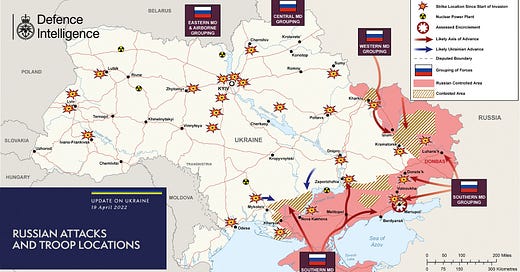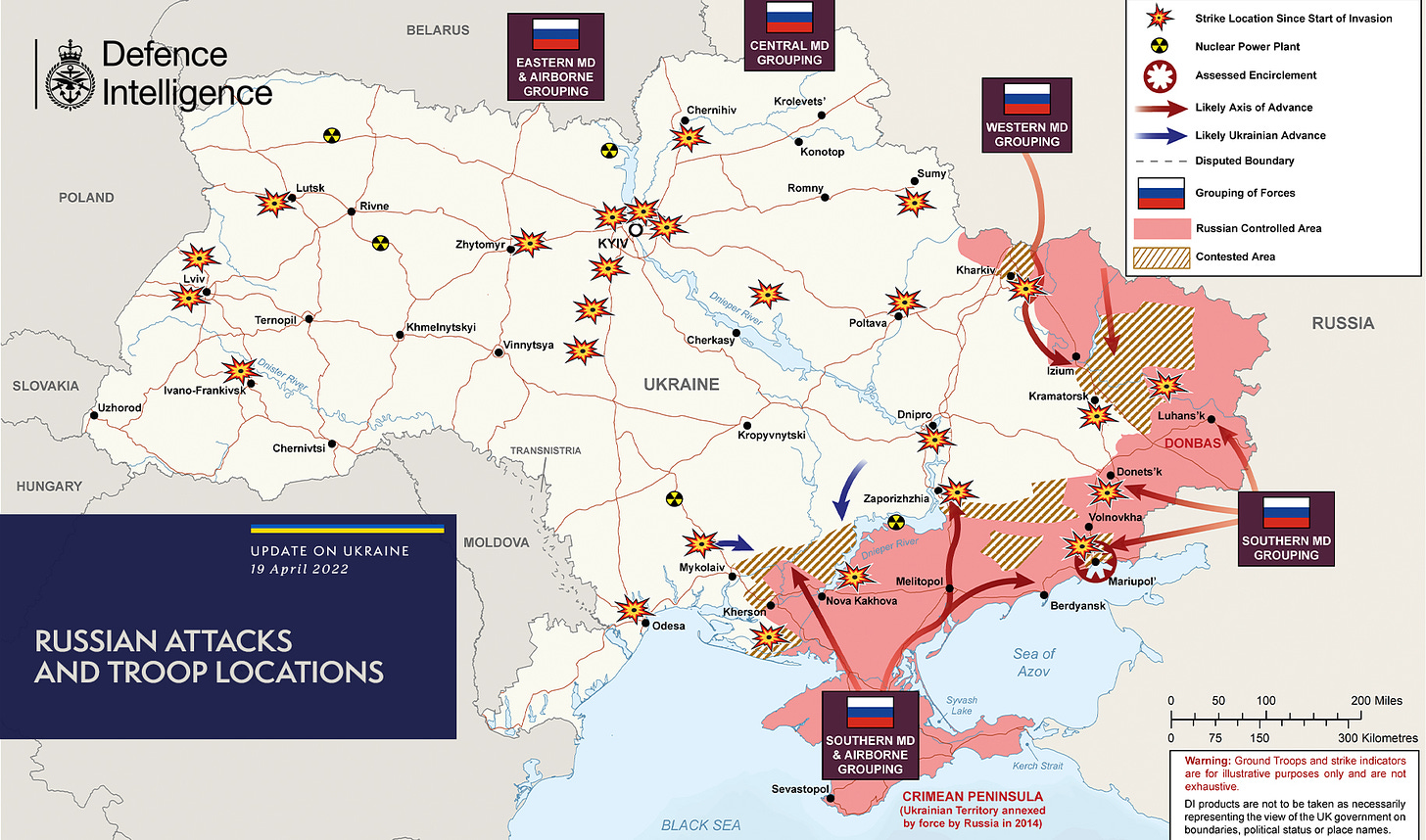A massive Russian bombardment of 300 miles of frontline in eastern Ukraine has marked the start of a new chapter in Putin’s war: the fight for the Donbas.
After fierce gunfights and hours of relentless bombing on Monday, Russian forces captured the small city of Kreminna in Luhansk, just 35 miles from Kramatorsk, Ukraine’s military headquarters in the Donbas, putting it within range of Russian missiles.
In his nightly address, President Zelensky insisted Ukrainian forces could withstand the fresh onslaught: “No matter how many Russian troops they send there, we will fight. We will defend ourselves.”
Ukrainian officials and Western intelligence points to the assault being a prelude to a much larger offensive. British Defence Intelligence expects Russia to launch a three-pronged attack on the Donbas via Kharkiv in the north, Crimea in the south and through the cities of Mariupol, Donetsk and Luhansk in the east.
The pivot east marks a scaling back of Putin’s ambitions after failing to take Kyiv and remove Zelensky. Since withdrawing from Kyiv and northern Ukraine last month, Russia has poured troops into the Donbas, Ukraine’s industrial heartland comprising of the breakaway provinces of Luhansk and Donetsk which were recognised by the Kremlin as independent just before the war began. The area is overwhelmingly Russian-speaking, which the Kremlin equates to being pro-Russian.
The campaign in the east will define how the war ends. Putin needs a win, and conquering the Donbas would give him one. Russia’s foreign minister, Sergei Lavrov, said the campaign would be a “very important moment” for Russia’s “special operation.”
There are signs that the war is being recast within Russia. As Michael McFaul, a former US ambassador to Russia, points out, in a recent news broadcast, gone were references to “de-nazification” and “de-militarisation” of Ukraine. Instead, the anchor spoke of a “special military operation in defence of the Donbas”.
The Kremlin will be hoping to achieve something that could be labelled a victory by 9 May, the date Russians celebrate the defeat of Nazi Germany. The Kyiv Independent newspaper reported in March that Russian troops were being told that the war must end by this date, citing Ukrainian intelligence.
But a quick campaign is unlikely. Even though Ukrainian forces are heavily outnumbered, Russian morale is low and Ukraine’s best-trained troops are already in the east, battle-hardened after eight years of fighting. What they need is equipment. The Russians know this and have started targeting supply routes from Slovakia, Poland and other NATO countries.
The US-based Institute for the Study of War believes Russia may be able to wear down Ukrainian positions, but likely at a high cost. With an estimated 15,000 Russians already sacrificed for little tangible military gain, there’s little doubt Putin would be prepared to pay it.





